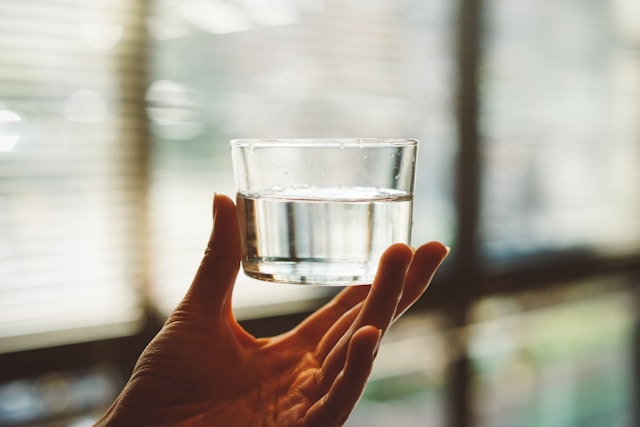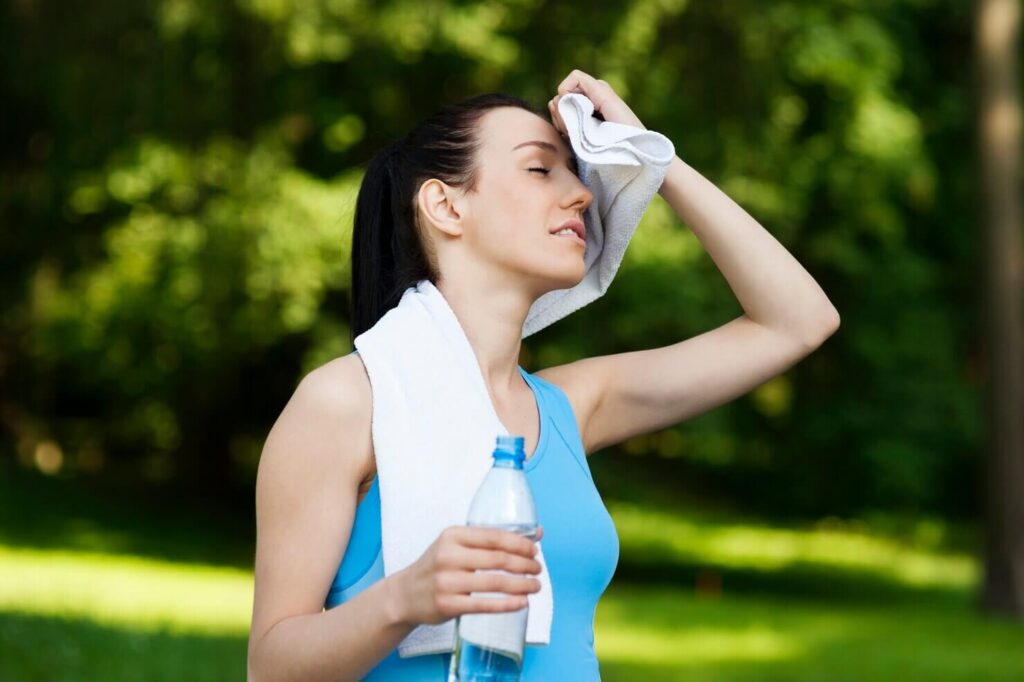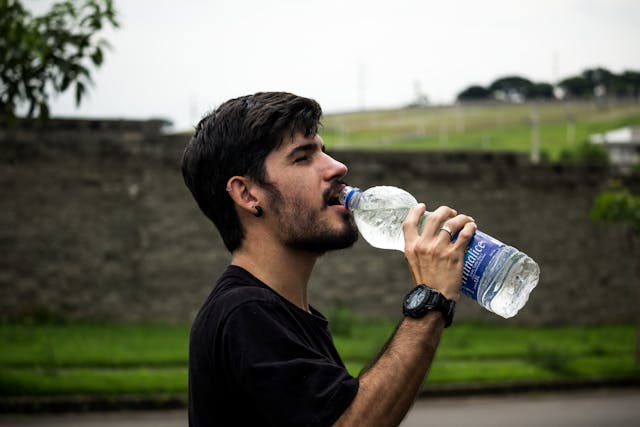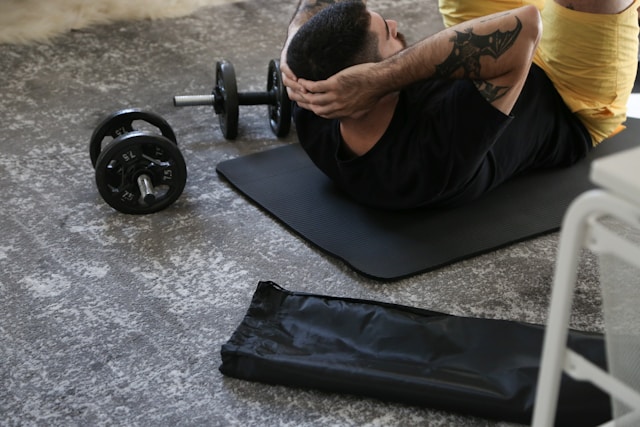Water is essential for life, playing a critical role in nearly every bodily function. From regulating body temperature to flushing out toxins, hydration is a key factor in maintaining good health. However, many people are unsure about how much water they should be drinking daily. This article explores the importance of hydration, the factors that influence water needs, and practical tips for staying hydrated.
Why Hydration is Crucial for Health
Water is vital for numerous bodily functions, including:
1. Regulating Body Temperature: Water helps regulate body temperature through processes like sweating and respiration. When you’re dehydrated, your body’s ability to cool down is compromised, which can lead to heat-related illnesses.
2. Supporting Digestion: Adequate hydration is necessary for the digestive system to function properly. Water aids in breaking down food, absorbing nutrients, and preventing constipation.
3. Transporting Nutrients and Oxygen: Water is a key component of blood, which transports nutrients and oxygen to cells throughout the body. Without sufficient water, these essential processes can be hindered, leading to fatigue and other health issues.
4. Lubricating Joints and Protecting Tissues: Water acts as a lubricant for joints and cushions vital organs and tissues. Dehydration can lead to joint pain and stiffness, as well as increased risk of injury.
5. Removing Waste: Water is essential for the kidneys to filter waste from the blood and excrete it through urine. Adequate hydration helps prevent kidney stones and urinary tract infections.
6. Maintaining Skin Health: Hydration plays a crucial role in maintaining healthy skin. It helps keep the skin hydrated, elastic, and free from dryness or irritation. Dehydration can lead to dry, flaky skin and exacerbate conditions like eczema.
How Much Water Do You Really Need?

The amount of water a person needs can vary based on several factors, including age, gender, activity level, and climate. While the “8×8 rule” (eight 8-ounce glasses of water a day) is a common guideline, individual needs may differ.
1. General Recommendations: The National Academies of Sciences, Engineering, and Medicine recommends a daily water intake of about 3.7 liters (125 ounces) for men and 2.7 liters (91 ounces) for women. This includes all fluids consumed, not just water, as well as the moisture content in foods.
2. Factors Affecting Hydration Needs:
a. Physical Activity: If you’re physically active, especially in hot or humid conditions, your body loses more water through sweat. You’ll need to drink more water to compensate for these losses and prevent dehydration.
b. Environment: Hot or humid weather can increase your water needs as your body loses fluids through sweat. In contrast, cold weather may decrease your thirst, but your body still needs adequate hydration, especially during exercise.
c. Health Conditions: Certain health conditions, such as fever, vomiting, diarrhea, and urinary tract infections, can increase your water needs. Pregnant and breastfeeding women also require additional fluids to support their health and the health of their babies.
d. Diet: Your diet can influence your hydration needs. For example, high-protein or high-fiber diets may require more water to aid in digestion and prevent constipation. Caffeinated and alcoholic beverages can have diuretic effects, leading to increased fluid loss.
Signs of Dehydration

It’s important to recognize the signs of dehydration, as it can have serious health consequences if left untreated.
1. Mild Dehydration:
- Thirst
- Dry mouth and lips
- Dark yellow urine
- Fatigue
- Dizziness
- Headache
2. Severe Dehydration:
- Extreme thirst
- Very dark or amber-colored urine
- Rapid heartbeat
- Rapid breathing
- Sunken eyes
- Confusion or irritability
- Fainting
If you experience severe dehydration, seek medical attention immediately, as it can lead to complications like heatstroke, kidney failure, and seizures.
How to Stay Hydrated

Maintaining proper hydration is essential for overall health and well-being. Here are some practical tips to help you stay hydrated:
1. Drink Water Regularly: Make it a habit to drink water throughout the day, even if you’re not feeling thirsty. Set reminders on your phone or use a water tracking app to ensure you’re meeting your daily intake goals.
2. Start Your Day with Water: Drinking a glass of water first thing in the morning can help kickstart your hydration for the day. It’s a simple yet effective way to rehydrate after a night of sleep.
3. Carry a Reusable Water Bottle: Having a reusable water bottle with you at all times makes it easier to stay hydrated, whether you’re at work, exercising, or running errands. Choose a bottle that’s easy to carry and refill.
4. Infuse Your Water: If plain water doesn’t appeal to you, try infusing it with natural flavors like lemon, cucumber, mint, or berries. This can make drinking water more enjoyable and encourage you to drink more.
5. Eat Hydrating Foods: Incorporate water-rich foods into your diet, such as fruits and vegetables. Cucumbers, watermelon, strawberries, oranges, and lettuce are all high in water content and can contribute to your overall hydration.
6. Monitor Your Urine Color: A simple way to gauge your hydration level is to monitor the color of your urine. Pale yellow or clear urine typically indicates adequate hydration, while dark yellow or amber urine suggests you need to drink more water.
7. Limit Caffeine and Alcohol: Caffeinated and alcoholic beverages can have diuretic effects, leading to increased fluid loss. While moderate consumption is generally fine, be mindful of your intake and compensate with extra water.
8. Hydrate Before, During, and After Exercise: If you’re engaging in physical activity, especially in hot or humid conditions, it’s important to stay hydrated before, during, and after exercise. Drink water regularly and consider electrolyte-rich sports drinks if you’re sweating heavily.
9. Set Hydration Goals: Setting daily hydration goals can help you stay on track. For example, aim to drink a certain amount of water by lunchtime and the rest by the end of the day. Celebrate your success when you reach your goals.
10. Listen to Your Body: Pay attention to your body’s signals, such as thirst, dry mouth, or fatigue. These are often indicators that you need to drink more water.
The Role of Electrolytes in Hydration
Electrolytes, such as sodium, potassium, calcium, and magnesium, are essential minerals that help regulate fluid balance, muscle function, and nerve signaling. When you sweat, you lose not only water but also electrolytes, which need to be replenished to maintain optimal hydration.
1. Sodium: Sodium helps retain water in the body and is crucial for maintaining blood pressure and nerve function. In situations where you’re sweating heavily, such as during intense exercise or hot weather, replenishing sodium is important to avoid hyponatremia (low sodium levels).
2. Potassium: Potassium is essential for muscle function and helps regulate fluid balance. Foods rich in potassium, such as bananas, oranges, and spinach, can help replenish this vital electrolyte.
3. Magnesium and Calcium: Magnesium and calcium play roles in muscle function and bone health. Including foods rich in these minerals, such as nuts, seeds, dairy products, and leafy greens, can support overall hydration and health.
4. Electrolyte Drinks: In situations where you’re sweating profusely or exercising for extended periods, electrolyte drinks can be beneficial. However, be cautious of sugary sports drinks, and opt for those with a balanced electrolyte content and minimal added sugars.
Hydration Myths and Misconceptions

There are several myths and misconceptions surrounding hydration that can lead to confusion.
1. Myth: You Need to Drink 8 Glasses of Water a Day: While the 8×8 rule is a popular guideline, it’s not a one-size-fits-all recommendation. Your individual water needs may be higher or lower based on factors like activity level, climate, and diet.
2. Myth: Thirst is the Best Indicator of Dehydration: Thirst is not always the best indicator of hydration status, especially in older adults, who may have a diminished sense of thirst. By the time you feel thirsty, you may already be mildly dehydrated.
3. Myth: Drinking More Water Always Leads to Better Health: While staying hydrated is important, excessive water intake can lead to a condition known as water intoxication or hyponatremia. This occurs when the sodium levels in your blood become dangerously low due to overhydration. It’s important to balance water intake with your body’s needs.
4. Myth: Coffee and Tea Are Dehydrating: While caffeinated beverages like coffee and tea have mild diuretic effects, they still contribute to your overall fluid intake. In moderation, they can be part of a healthy hydration plan.
Conclusion
Hydration is a fundamental aspect of health that impacts everything from physical performance to cognitive function. Understanding your individual water needs and making hydration a priority can help you maintain optimal health and well-being. By drinking water regularly, incorporating hydrating foods, and being mindful of factors that affect hydration, you can ensure your body has the fluids it needs to function at its best. Remember, staying hydrated is a simple yet powerful way to support your overall health.




